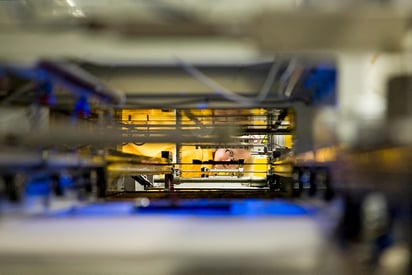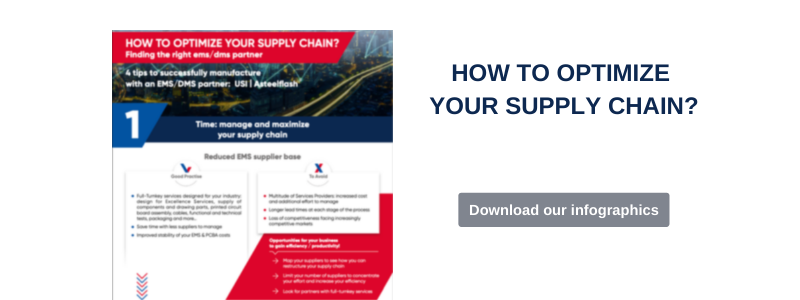Important attributes of Asteelflash are our flexibility, production capacity, reliable delivery scheduling and ability to improve processes, as is evidenced by this customer case study where, in response to a request from a multinational automotive manufacturer, we built a dedicated facility for volume production of a novel test system for assessing the performance of car batteries under various simulated running conditions.
The challenge
The manufacturing process for the battery tester was for the most part mechanical. The tester comprises a sheet steel enclosure that measures 150 x 120 x 100 cm and contains just a few printed circuit boards along with transformers and cable harnesses. Major challenges in the manufacturing process were handling the heavy components such as transformers and making provision for the high-voltage tests needed to meet regulatory requirements.
Further complications were that the deadlines for the project were very short – the order was placed in mid-July and production was required to start in September – and that examination of the drawings and other documentation supplied by the customer revealed that these were unsuitable for use in a volume production environment.

Investigating the solution
Asteelflash responded by carrying out a conceptual design study to assess costs and deadlines. This was followed by material and supplier selection process performed by our procurement team, which was needed because many of the component suppliers originally specified by the customer were new to us and were very slow in responding to requests for the information needed for qualification and approval.
To ensure efficient production of the battery testers, we purchased additional tooling and set up a special workspace equipped with fixtures, forklifts and visual aids. We also acquired the specialised equipment needed for the electrical tests and provided a dedicated room where high-voltage testing could be carried out safely by staff who had received specialist training.
Delivered on time, efficiently
As a result of these measures, and with close cooperation between the customer and ourselves, the new product introduction (NPI) phase of the project was implemented smoothly and, after minor adjustments to the production processes to meet customer expectations, a successful transition was made to volume production. At all stages, the project progressed efficiently and without problems, ensuring that the tight deadlines were met. Very positive feedback was received from the customer who expressed complete satisfaction both with the project itself and with the results.
As this brief case study has shown, Asteelflash’s capabilities are not limited to the manufacture of small electrical or electronic assemblies and products. We have the expertise to produce large and heavier items of equipment and, where necessary, to set up specialist production facilities to meet the needs of our customers from design to mass production.

Our capabilities have been further strengthened by our recent partnership with USI, giving us a global presence with local teams to support lifecycle development of technically advanced and highly complex projects. If, therefore, you are contemplating volume manufacture, why not contact one of our experts to discuss your production processes and to get recommendations about reducing your manufacturing costs.




